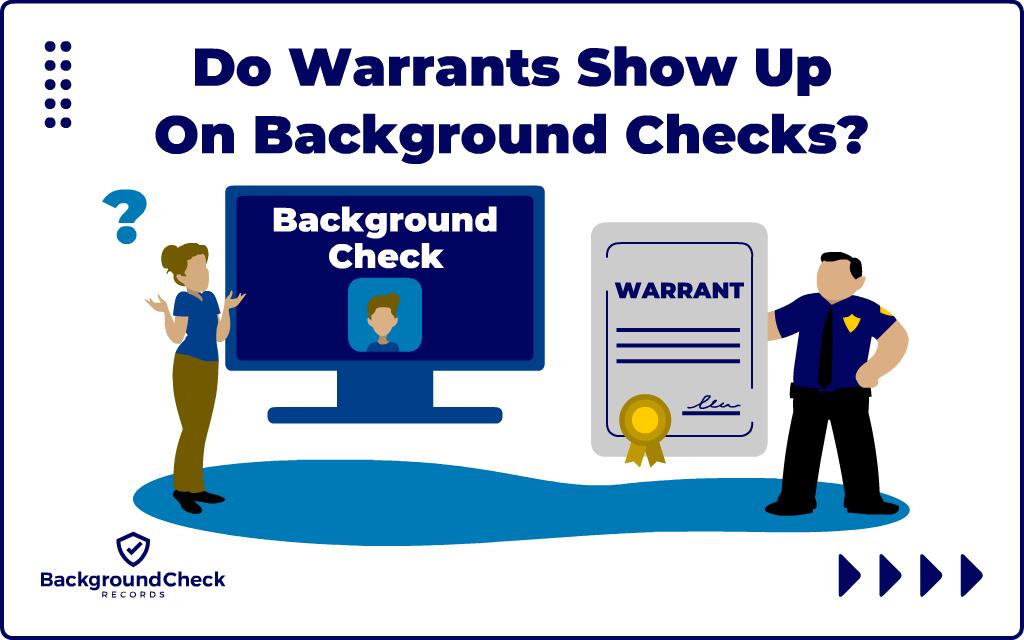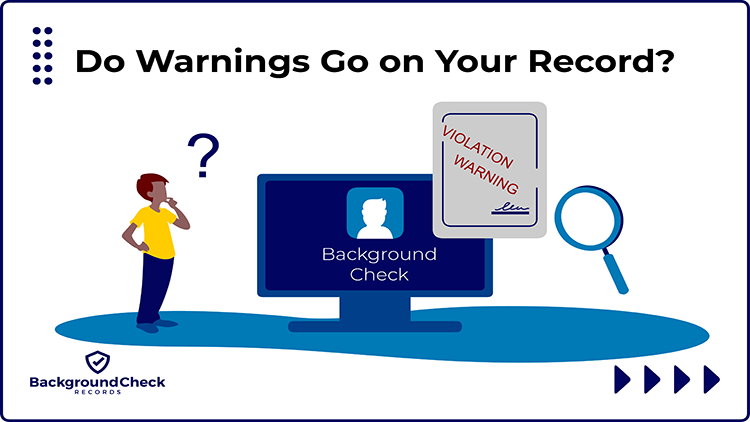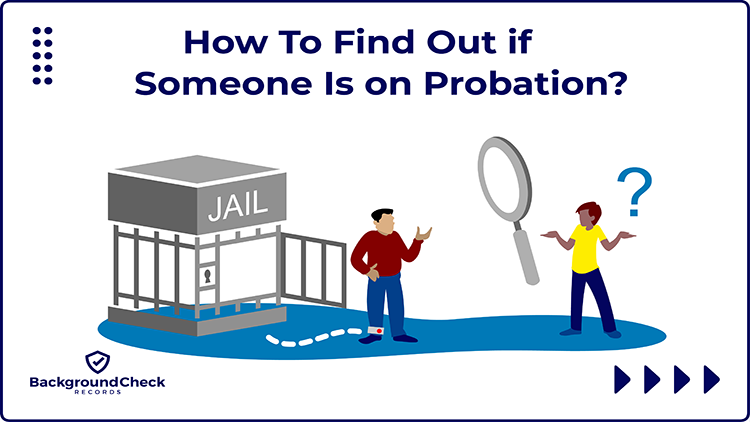Do Warrants Show Up on Background Checks? (Only These Types)
When addressing whether warrants appear on background checks, it’s crucial to recognize the various types available (including arrest, search, bench alias, capias, civil capias, fugitive, and governor’s warrants), though only certain types are publicly accessible.1
Therefore, it’s important to know which ones will appear on a background check because, in addition to directly impacting a person’s freedom, certain types of warrants can be used when conducting a background check for employment, apartment applications, professional licenses, and more.
Visibility of Warrants in Background Checks: Understanding Its Types
There are eight basic types of warrants according to the National Center for State Courts and not all of them are shown on background checks.
For context, warrants typically include the subject’s name (or alias or detailed description if the name is unknown), the offense or reason for the warrant, the order that the subject is brought before a court, and the signature of a judge with jurisdiction over the matter.2 However, the jurisdiction, type of background check, and type of warrant dictate whether or not it will be shown on a background check report.
Here are the different types of warrants and whether or not they show up on background checks:
Arrest Warrants: The most commonly thought of warrant is an arrest warrant and yes, these can appear on certain types of background checks. These are issued by judges or magistrates pursuant to a signed affidavit identifying a crime has been committed and there is probable cause that the subject is the person who committed the crime. An arrest warrant gives law enforcement authority to arrest and detain suspects in crimes.
Capias Warrant: In Latin, capias means that you take or seize and for legal matters, it means that an arrest warrant can be issued and you can be taken to jail. This is an arrest warrant that is issued when the defendant fails to pay a fine or satisfy other conditions of sentencing following a criminal conviction; and they can also be seen on background check screenings. Paying the fine or serving the time prescribed in the sentence is the only way to resolve this type of warrant. Traffic warrants can fall under this category when the subject fails to pay a fine or appear in court to dispute the traffic offense.
Civil Capias Warrant: This sort of capias warrant is issued in civil cases where the party has repeatedly failed to comply with the court’s order; It can be issued against either the plaintiff or defendant depending on which was non-compliant. Contempt of court in civil cases are examples of civil capias warrants. Another example is a warrant issued for failure to satisfy child support obligations.
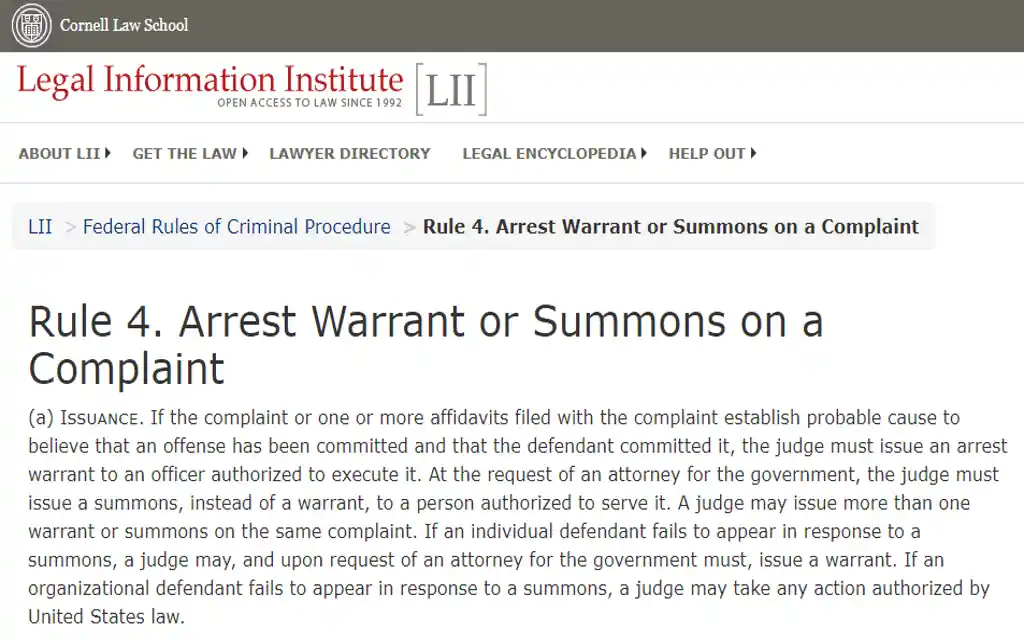
Search Warrants: This type of warrant is signed by a judge and gives law enforcement authority to search property or persons for evidence a crime has been committed. Search warrants can also be issued to obtain things such as hair or DNA from a person who is suspected of committing a crime.
These types of warrants are sometimes referred to as non-testimonial identification orders or identification orders. Probable cause must exist before a search warrant is issued per the rights guaranteed in the United States Constitution.3 One example of an exception to the rule is reference traffic stops and pat-down searches of drivers when there is a reasonable suspicion of a dangerous weapon only to remove the dangerous instrument.4
So when determining if warrants show up on background checks or not, search warrants, for the house, home or other personal property, are one of the few types that aren’t shown due to the potential for compromising investigations.
Alias Warrants: This is also referred to as a “failure to appear” warrant and is issued when a person fails to appear in court before a plea has been entered on a citation. Usually a charge of “failure to appear” is also added. For example, this type of warrant can be issued when someone does not appear for jury duty.
Bench Warrants: Bench warrants are another type of “failure to appear” warrant that can be shown on background checks. This is issued by a judge when a defendant does not appear in court on criminal charges, and the subject has been duly served with a notice to appear. Probation warrants (those issued for violating terms of probation/court supervision conditions) fall under this category as well.
Fugitive Warrant: These warrants are issued by state authorities, sent to local jurisdictions where suspects may be located, and can be shown on background checks. Fugitive warrants are issued when individuals abscond from state or federal custody (incarceration or community supervision), or are suspects in criminal cases and have fled to avoid arrest or questioning.
Governor Warrant: A governor’s warrant allows for the extradition of a suspect back to the state the person is suspected of committing a crime.1 Depending on the type of warrant, governor warrants be be shown as well.
As far as warrants appearing on background checks, most warrants can appear on background checks but the type of background check and the level of thoroughness is one of the major dictating factors — more information can be seen on this two sections below.
Do Background Check Reports Show Active Warrants?
Whether or not warrants will be included in the background report depends on the nature of the background check, how deeply the searcher wants to dive into the person’s history, the state where the warrant originated, the type of warrant, and the reason for conducting the search.
Certain situations, such as applications for security clearance, require a much more detailed report than other situations, such as a routine background check for an apartment. In short, warrants can and do show up on background checks but not all checks (or warrants) are created equal.
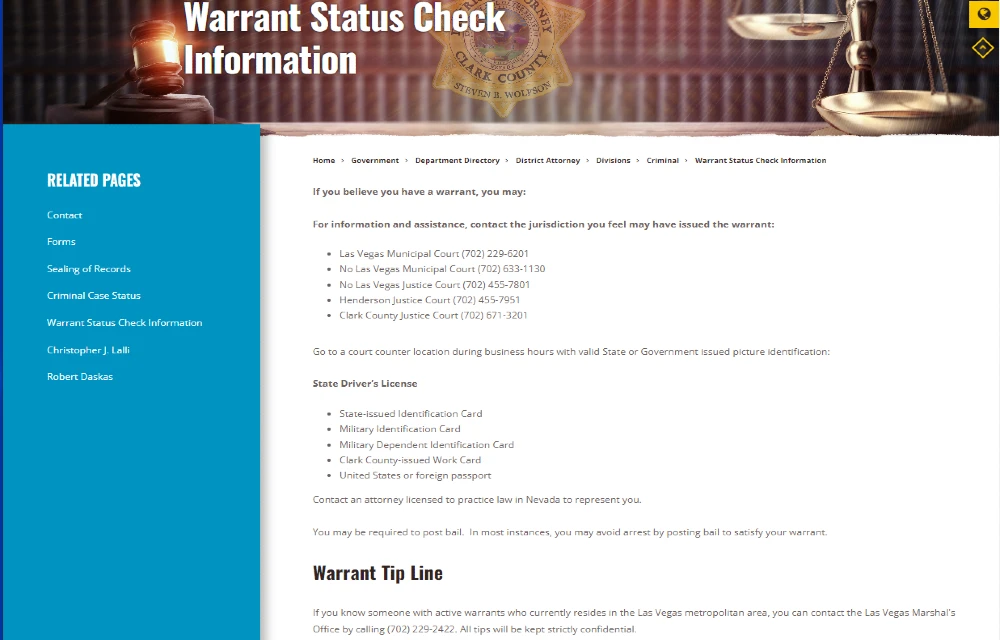
No matter the case, it’s imperative to resolve the warrant quickly and efficiently. And if you know someone evading a warrant, it’s best to work with your local law enforcement to resolve the matter. Some jurisdictions even have a list of contact pages and warrant tip lines, such as Clark County Nevada.
Types of Background Checks That Show Arrest, Bench, and Capias or Civil Capias Warrants
As with the types of warrant, there are various levels of screenings, each with their own level of scrutiny – and the depth of the background check is a determining factor as to whether or not the warrant will be shown.
To elaborate on this, the types of background checks that show arrest, bench, alias, governor, and capias or civil capias warrants can be seen below.
- Level 1 Background Check: Level 1 background checks are often name, SSN, credit history, and basic criminal background checks. Depending on the state will determine if warrants routinely show up on background checks.
- Level 2 Background Check: A level 2 background check, which includes fingerprinting, can disclose if a person has outstanding warrants. These are for more sensitive jobs such as working with children, law enforcement/corrections, health, and safety, or licensure professions.
- Personal Background Check: Individuals can run a personal background check on themselves or someone else (such as a dating interest) to see if the person has a criminal history including warrants. These are usually conducted via third-party search sites and information may or may not be up to date.
- Employment Pre-Screening Background Check: During the pre-screening process, an employer may run a background check that has the potential to show the subject has an outstanding, active warrant. The depth of a job background check will depend on the position and the person conducting the screening. Jobs that include working with children or other vulnerable populations, public safety/corrections, or jobs in the health field often include steps such as fingerprinting which makes it more likely for any warrants to appear on the record check. Employment screenings can be either Level 1 or Level 2 checks.5
- Professional Licensure Background Check: Background checks for professional licensure can be more extensive than general employment background screenings; therefore, outstanding warrants can appear on a licensure background check. Licensure checks are Level 2 checks.
- Security Clearance Background Check: For positions that require a security clearance, a record check will always include any outstanding warrants as part of the criminal records check. Security clearance checks are Level 2 checks and may also include an investigative report with interviews of persons familiar with the subject’s character.6
- Tenant Screening Background Check: A warrant may appear on a background check conducted by a potential landlord, but it depends on the depth the individual dives into a person’s background and the type of screening conducted. If a landlord just does a credit history, a warrant will not appear on the report. If the screening also includes a criminal history check, it can include any warrants.7
It is important to note that warrants do not equate to convictions; therefore, the Department of Housing and Urban Development (HUD) prohibits using arrests (warrants) as a means to deny housing.8
- Educational Programs Background Check: Some educational institutions run background checks on prospective students before the student is allowed to complete clinical hours. These programs usually fall under allied health professions, early childhood programs, or others that would require background checks for employees. These background checks may or may not include warrants depending on the state.9
- Volunteering Background Check: Agencies and organizations that require background checks for employees can also require background checks for volunteers. These volunteer background checks have the potential to disclose outstanding warrants just as employee checks can. Volunteers at public schools, hospitals, or other public institutions can be subjected to background checks.10
- Motor Vehicle Operator’s License Background Check: Some states allow the Department of Motor Vehicle (DMV) to run warrant searches on individuals applying for a driver’s license or state ID. New York’s system uses facial recognition software that automatically runs photos taken at the DMV through the database to see if there is a match to outstanding warrants.11
- Law Enforcement/Motor Vehicle Background Check: Law enforcement has the ability to search for arrest warrants during the course of investigations or while running motor vehicle record searches pursuant to a traffic stop. When an officer runs a person’s tag, name, or driver’s license, any outstanding warrants (state and national) are accessible.
Note, a level 3 and level 4 background check may also show warrants since they encompass what’s included on levels 1 and 2.
Will a Potential Employer Hire You With a Warrant on Your Record?
As discussed, most types of warrants can show up on background checks and some employers may consider them red flags; however, warrants are issued for a number of reasons and are usually issued before the subject has been convicted of a criminal offense or violation of a civil order so it is still possible for a person to be hired with a warrant on his or her record.
Because warrants can be recalled at any time or are disposed of once they are served and the individual is in custody, they are not enough to deny employment in and of themselves.
Also, since warrants are attached to criminal or civil cases; even if it does not appear on the background check, the underlying charge or civil action may. Again, a charge on a criminal record alone does not constitute grounds for denying employment. Convictions can be used to determine suitability, but pending charges may end up being dismissed or dropped at any time in the process.
Warrants in some states do not show up on background checks until they have been executed by law enforcement and the case is docketed for hearing. At that time, the information will appear as a pending charge, not an outstanding warrant.12
Ultimately, the company’s hiring policy will determine if a person with an outstanding warrant is hired when one appears on a background check.
Are Old Warrants Revealed on Criminal Background Checks?
In most jurisdictions, old warrants refer to those that have not yet been served; therefore, they can still show up on a background check. Old warrants might appear on a free criminal background check or paid versions, depending on factors such as the issuing state, the nature of the warrant, and other considerations. The information disclosed can vary based on the laws and statute of limitations in each state.
Traditionally, warrants that have been disposed of (recalled, served, or otherwise dismissed) will not show up on a background check as outstanding warrants; however, these may appear on background checks as criminal charges or civil matters if the matter was docketed for hearing.
Warrants usually do not expire per se (even in states where there is a statute of limitations on executing a warrant, inactive warrants can be reissued/renewed on demand), so there is always a chance an active warrant will be discovered in a background check.13
Do Background Checks Show Warrants From Another State?
The extent of the background check will determine if out-of-state warrants appear on the record and some agencies will only conduct a local background check to see if there are pending charges or convictions in the state the individual resides.
Other positions require a national background check with fingerprints (as outlined earlier in this article) that can reveal outstanding warrants. National record checks have greater potential to display active out-of-state warrants due to their scope. But the answer to whether or not background checks show out of state charges varies depending on many factors.
The local DMV may also run a warrant search depending on the state the individual is in. These searches include out-of-state warrants in addition to local custody orders. DMV searches can be by name or by use of facial recognition software like that used by the New York DMV.11
Can You Pass an Employment Background Check With an Outstanding Warrant?
It is possible to pass a background check even with an outstanding warrant although the type of background check can be the deciding factor. If the background check doesn’t dive too deeply into a person’s history, or it is a state that strictly prohibits searching for non-convictions, an employer may not be made aware of an outstanding warrant.
If the job requires security clearance, for example, many Department of Defense positions, or fingerprinting, such as law enforcement will not be viable until the warrant has been satisfactorily cleared.
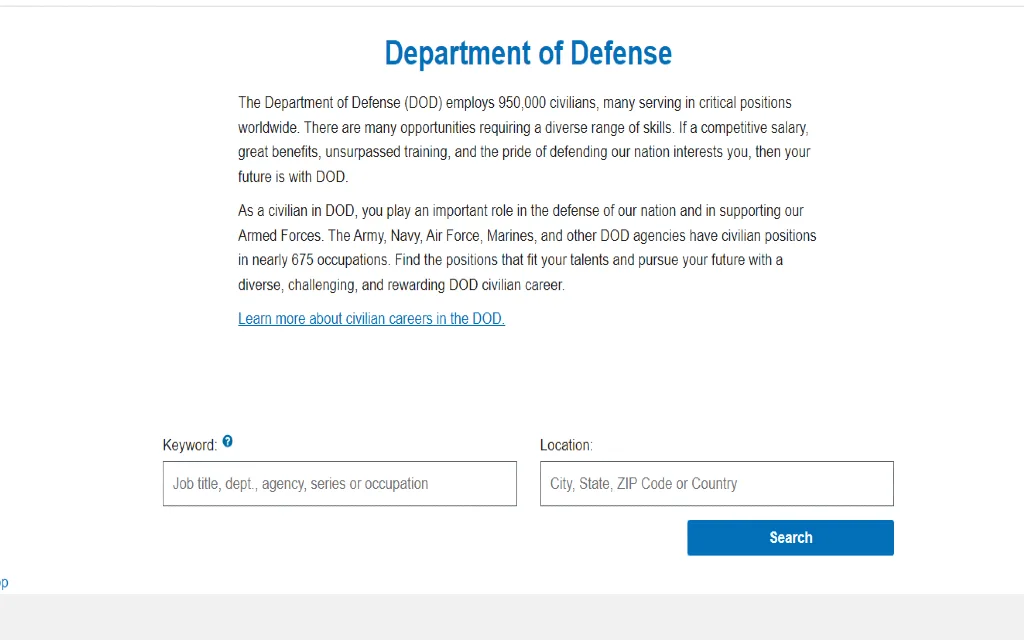
If the applicant knows they have an outstanding warrant and are in the process of clearing it up, the applicant can disclose this to a potential employer. Situations occur where warrants are issued erroneously, and these take time to clear up. Explaining the situation to a potential employer can mitigate any negative factors having a warrant on a background check could create.
To alleviate any potential issues with employment, it is recommended the person resolve the warrant as quickly as possible by utilizing the assistance of a criminal defense attorney. Prior to applying for a job, the applicant can run a personal background check to see what appears.
Anything that can be construed as negative by a prospective employer should be cleared or a plan of action to dispose of/deal with the situation formulated. Hiring an attorney to help clear up any outstanding warrants is recommended.14
It’s no secret that warrants can greatly impact a person’s life and they can lead to restrictions on freedom, difficulty obtaining employment, and negatively impact personal relationships.
Many factors determine what is included in a background check and the various methods of conducting them, making the question of whether warrants appear in background checks a complex one without a simple yes or no answer.
Frequently Asked Questions
Do Warrants Show Up on Apartment Background Checks?
Typically background checks for apartments do not show outstanding warrants. Apartment background checks look for criminal convictions, credit history, and rental history. Additionally, the HUD strictly prohibits denying someone housing based on warrants/charges alone.
Can I Get Married With a Warrant or Do Marriage Licenses Require a Background Check?
An outstanding warrant does not stand in the way of marriage. Couples may, and do, get married when one party (or both) has outstanding warrants. Since marriage licenses only require proof of identification, divorce decrees (for those previously married), and payment for the marriage licenses, a background check is not conducted.
1 Warrant Types. (n.d.). WDMToolkit. Retrieved July 5, 2022, from <https://www.wdmtoolkit.org/business-processes/warrant-process-flow/warrant-types>
2 Rule 4. Arrest Warrant or Summons on a Complaint. (n.d.). Legal Information Institute. Retrieved July 5, 2022, from <https://www.law.cornell.edu/rules/frcrmp/rule_4>
3 Search warrant | Wex | US Law | LII / Legal Information Institute. (n.d.). Legal Information Institute. Retrieved July 5, 2022, from <https://www.law.cornell.edu/wex/search_warrant>
4 Traffic Stops: Police Powers Under the Fourth Amendment. (n.d.). Office of Justice Programs. Retrieved July 5, 2022, from <https://www.ojp.gov/ncjrs/virtual-library/abstracts/traffic-stops-police-powers-under-fourth-amendment>
5 Seidel, M., & Maxwell, M. (2020, February 11). Does a Warrant Show Up on a Background Check? Legal Beagle. Retrieved July 5, 2022, from <https://legalbeagle.com/13710149-does-a-warrant-show-up-on-a-background-check.html>
6 General Investigations and Clearance Processes. (n.d.). Defense Counterintelligence and Security Agency. Retrieved July 5, 2022, from <https://www.dcsa.mil/mc/pv/mbi/gicp/>
7 Will a bench warrant show up on a rental application background check? – Legal Answers. (2016, February 4). Avvo. Retrieved July 5, 2022, from <https://www.avvo.com/legal-answers/will-a-bench-warrant-show-up-on-a-rental-applicati-2494049.html>
8 FAQs: Excluding the Use of Arrest Records in Housing Decisions. (n.d.). HUD. Retrieved July 5, 2022, from <https://www.hud.gov/sites/documents/FAQ_EXCLUDE_ARREST_RECORDS.PDF>
9 Background Checks for School of Health Professions | Health Professions. (n.d.). UT Health San Antonio. Retrieved July 5, 2022, from <https://uthscsa.edu/health-professions/admissions/acceptance/background-check>
10 Fingerprinting for Volunteers and Chaperones – The Center School. (n.d.). The Center School. Retrieved July 5, 2022, from <https://center.nrsd.net/families/fingerprinting_and_volunteers>
11 Peeler, T. (2019, April 3). Out-of-State Arrest Warrants | Warrant in Another State. LegalMatch. Retrieved July 5, 2022, from <https://www.legalmatch.com/law-library/article/out-of-state-arrest-warrants.html>
12 What Shows Up on a Background Check? (n.d.). Mulligan Attorneys. Retrieved July 5, 2022, from <https://www.helpingpeoplenc.com/background-check/>
13 Thorne, R. (2017, June 16). What to Do About a Missed Court Date for a Speeding Ticket? Legal Beagle. Retrieved July 5, 2022, from <https://legalbeagle.com/5810409-do-court-date-speeding-ticket.html>
14 If i have a open warrant can i still find a job and work without being taken to jail? – Legal Answers. (2013, May 27). Avvo. Retrieved July 5, 2022, from <https://www.avvo.com/legal-answers/if-i-have-a-open-warrant-can-i-still-find-a-job-an-1249734.html>

